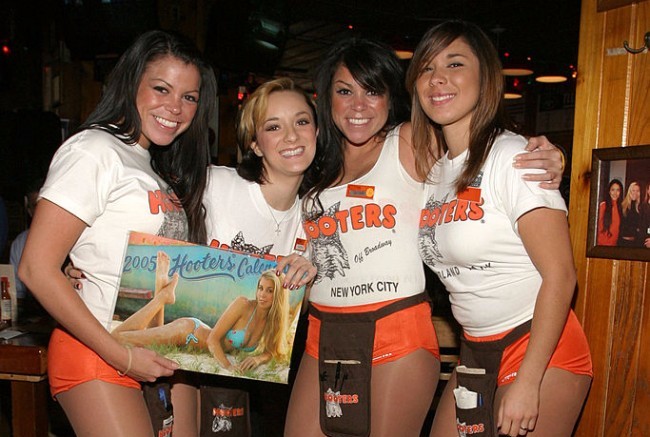
Working at any restaurant or bar as a woman can be harrowing. “Come here, sweetheart,” tables of drunken men will say when they want another bottle of ketchup. Women are expected to flirt, to smile, to accept sexual teasing, and personal questions with a sweet, feminine air while making it seem like they’re having the time of their life being leered at by men on their 5th beer.
The problem with this scenario is that unlike most other workplaces (where such behavior would be reprimanded), you’re pretty much required to play along. Sure, you could call the patron out on it, get a manager, or refuse to serve the table. At pretty much any restaurant you can say, I don’t want to serve them anymore, and a manager won’t make you. But then you don’t get a tip. And when you’re making 3-5 bucks an hour, you really need that tip. Your compensation (your rent, your food, your insurance payment) is built around playfully and politely ignoring daily harassment. Because you need the money. And according to a new study from the University of Tennessee it turns out that restaurants such as Hooters, which especially highlight and sexualize women’s bodies, aren’t so great for their well-being.
The study, by psychology professor Dawn Szymanski and graduate student Renee Mikorski is chronicled in the article, “Sexually Objectifying Environments: Power, Rumination, and Waitresses’ Anxiety and Disordered Eating” and was published in the journal Psychology of Women Quarterly. The researchers studied more than 250 female restaurant servers ages 18 to 66.
According to USA Today, Szymanski and Mikorski asked the women whether it was requested they wear revealing clothing and how customers treated them. They also asked about power dynamics between managers and male employees in the restaurant.
Per USA Today:
The researchers concluded that women who work in “sexually objectifying restaurant environments,” where they wear revealing clothing and are encouraged to flirt with customers, were at greater risk for anxiety and eating disorders. That was not only because their bodies were displayed and scrutinized, in some instances with their appearance “graded” by customers and supervisors, but also because they lacked power at work to control their own environment, such as with sexual harassment.
It’s not exactly a surprising finding. Some would argue that women don’t have to work at the Tilted Kilt or Twin Peaks. But consumers also choose which restaurants they frequent, and one that promotes an atmosphere of harrassment or objectification and may be dangerous and damaging to its employees might be one to stay away from. There are other places to get good wings after all. At least, that’s what the researchers at the University of Tennessee hope people come away with after hearing their findings.
“We want to raise awareness about the negative impact that these types of restaurant environments may have on female servers,” Syzmanski told USA Today. “We want the public to use this data in personal decisions about whether to support or not support these types of restaurants.”






